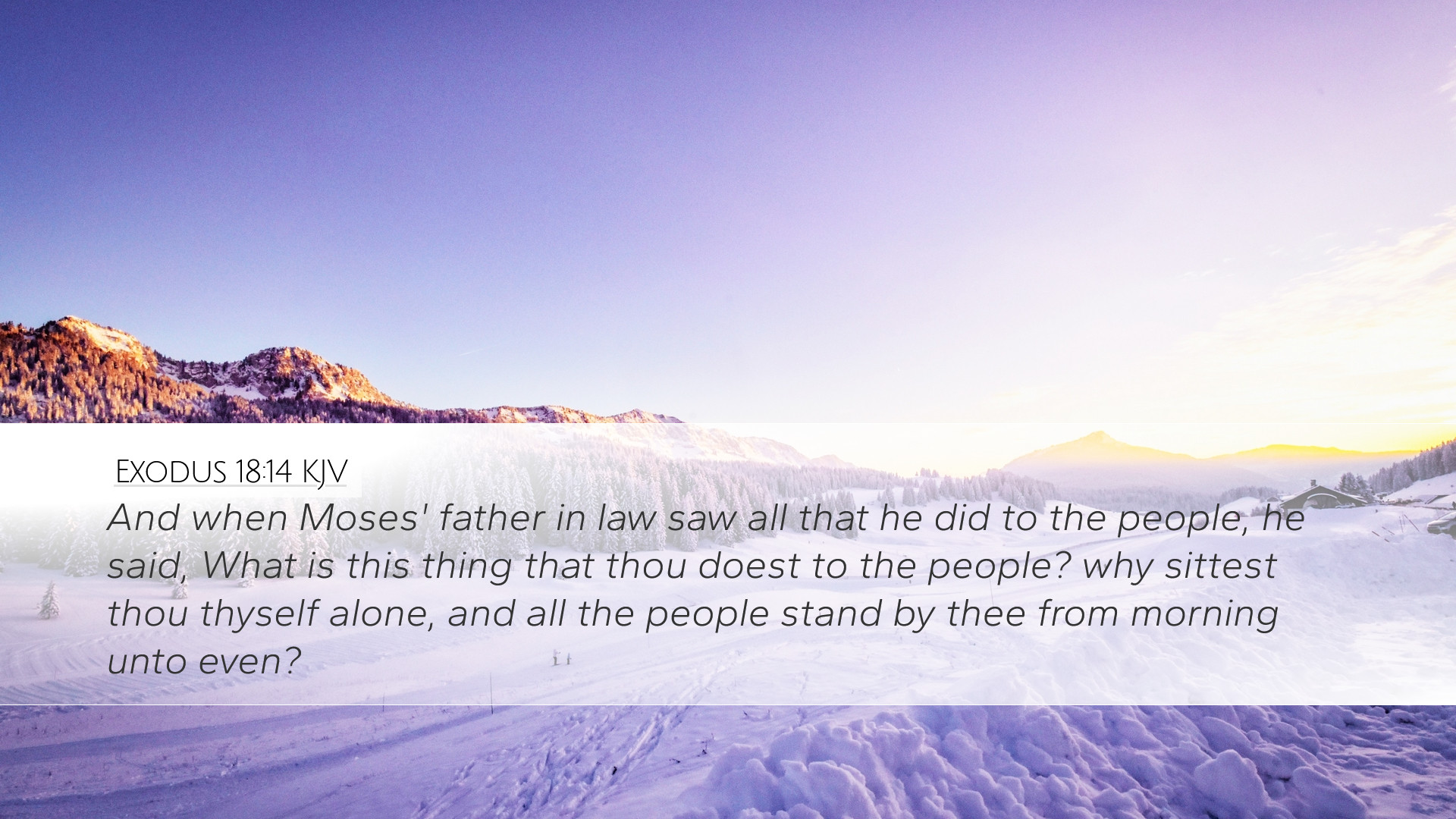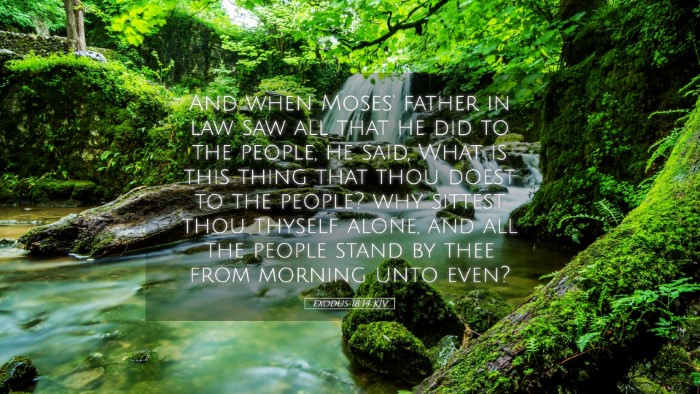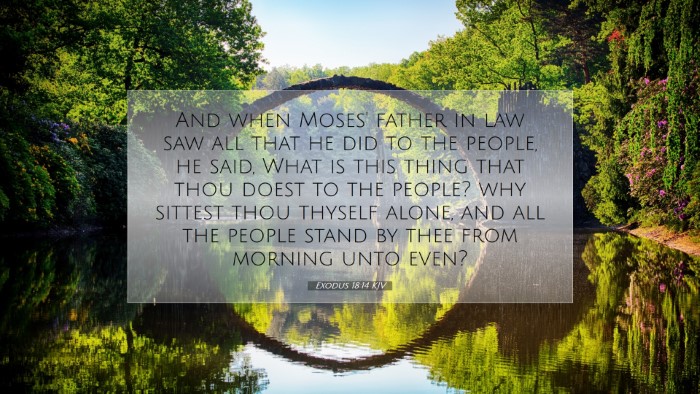Exodus 18:14 Commentary
Verse: "And when Moses' father-in-law saw all that he did to the people, he said, What is this thing that thou doest to the people? why sittest thou thyself alone, and all the people stand by thee from morning unto even?" (Exodus 18:14, KJV)
Introduction
This verse marks a significant moment in the life of Moses as a leader of the Israelites. It shows Jethro, Moses’ father-in-law, observing the burden Moses has taken upon himself as he leads the people and the inefficiency of the system he established. The insights gleaned from several public domain commentaries will shed light on the implications of this conversation, its theological significance, and lessons for contemporary leadership.
Contextual Understanding
The setting of Exodus 18 is crucial for understanding Moses’ fatigue and Jethro’s counsel. After leading the Israelites out of Egypt and through the wilderness, Moses has taken on a monumental role not just as a leader, but also as a judge for the people. This verse opens the dialogue about human limitations and the necessity of shared leadership.
Commentary Insights
1. Observations of Jethro (Matthew Henry)
Matthew Henry emphasizes Jethro's keen observation skills. He recognizes the burden of leadership that Moses carries and questions the sustainability of his solitary approach. Henry notes that this inquiry comes from a place of concern for both Moses and the people; it is an introspective moment, indicating that often leaders need others to point out their limitations and inefficiencies.
2. The Importance of Delegation (Albert Barnes)
Albert Barnes elaborates on the concept of delegation that Jethro later introduces. He argues that the role of a leader is not to carry the entire burden alone, but rather to equip others with responsibilities. Barnes highlights that effective leadership involves distributing tasks to capable individuals, enhancing overall productivity, and serving the community better.
3. The Role of Communication (Adam Clarke)
Adam Clarke discusses the necessity for clear communication within leadership structures. He underscores that Jethro’s questioning signifies a critical need for leaders to evaluate and listen to external perspectives. Clarke stresses that good leaders must be open to feedback and willing to adjust their methods for the sake of effectiveness and well-being of those they lead.
Theological Significance
This verse serves as a call for understanding God’s design for leadership. It acknowledges that while God appoints leaders, He also lays out structures within which these leaders can operate effectively. Jethro’s advice highlights the necessity of community in leadership — a theme echoed throughout scripture.
- God’s Provision: This passage emphasizes God's provision through wise counsel. God provides leaders with mentors and guides to navigate challenges.
- Shared Responsibility: This moment foreshadows the principle of shared responsibility within the church where leadership is not centralized but distributed among members.
- Human Limitation: It serves as a reminder of human limitations, urging leaders to recognize their need for support and collaboration.
Practical Applications
The lessons gleaned from Exodus 18:14 can be applied in various areas of leadership and community life today:
- Evaluation of Practices: Leaders are encouraged to regularly assess their systems and practices, ensuring they do not fall into the trap of overburdening themselves.
- Encouraging Collaboration: Creating environments that foster collaboration by bringing in capable partners can lead to more effective outcomes.
- Welcoming Feedback: Leaders should cultivate a culture where feedback is welcomed and utilized to refine leadership strategies.
Conclusion
Exodus 18:14 opens up an essential dialogue on leadership dynamics, emphasizing the importance of observation, feedback, and delegation. Jethro’s concern for Moses reflects the underlying biblical principle that effective leadership is a collaborative effort. For modern leaders, pastors, and theologians, this passage serves as both a warning against over-exertion and an encouragement to build supportive communities that empower shared leadership.


